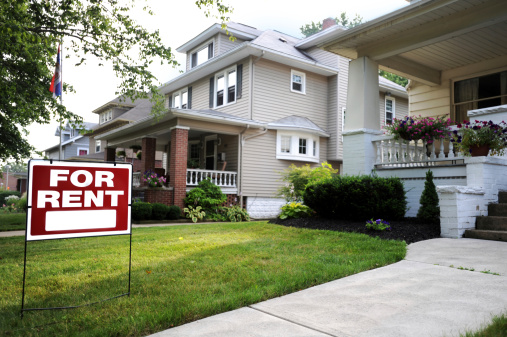
by ARTIS COMMERCIAL CAPITAL | May 30, 2023 | Blog
Commercial construction projects are complex endeavors that require careful planning and preparation. From start to finish, there are a number of steps involved in the process. These include obtaining permits and approvals, hiring contractors, purchasing materials, and managing the construction timeline. With so many moving parts, it can be difficult for business owners to understand what is required for a large commercial construction project.
Permits
The first step in any commercial construction project is acquiring the necessary permits and approvals. Depending on the size and scope of your project, you may need to submit an application or obtain permission from local authorities. It is important to research all applicable regulations and requirements before beginning the construction process to ensure compliance with local laws. This will help streamline the project and avoid any costly delays due to incorrect paperwork.
Contractors
Once all permits and approvals have been secured, you can begin the process of hiring contractors for your project. It is important to take your time when selecting a contractor, as they will be responsible for the overall quality of work completed onsite. Be sure to get multiple bids from different contractors and thoroughly review the contracts they provide to ensure all requirements are being met.
Sourcing Materials
The next step is to purchase materials for your construction project. This includes everything from lumber and drywall to plumbing fixtures and light fixtures. It is important to bargain shop for the best prices when purchasing materials, as this can save you a considerable amount of money in the long run. As you purchase materials, be sure to keep an organized list of all items purchased and store your receipts for future reference.
Managing Your Timeline
Finally, managing the construction timeline is a key component to any successful commercial construction project. This includes setting milestones and deadlines throughout the duration of the project as well as establishing goals for each step along the way. By keeping track of progress, you can ensure deadlines are met and all milestones are achieved on time.
Commercial construction projects require considerable planning and preparation to ensure they run smoothly from start to finish. Artis Commercial Capital provides ongoing to permanent financing for large construction projects. Contact our team today to get the funding you need to ensure success from start to finish.
by ARTIS COMMERCIAL CAPITAL | May 23, 2023 | Blog
Investing in real estate has long been seen as an attractive option for those looking to build wealth and generate passive income. Single-family rentals (SFRs) provide a unique opportunity for investors to capitalize on the growing demand for rental housing, while still being able to maintain control over their investments. From high returns on investment and tax benefits, to increased cash flow and appreciation of property value – there are many advantages that come with investing in SFRs.
1. High Returns on Investment
Investing in SFRs can provide a high rate of return, as rental income is often higher than the cost of mortgage payments. This type of real estate investment also has the potential for appreciation over time, providing an added boost to your total returns.
2. Tax Benefits
As an investor, you can take advantage of multiple tax benefits when investing in SFRs. These include deductions for mortgage interest, depreciation of the property value, and a variety of other expenses related to the rental property.
3. Cash Flow
Owning a rental property means that you will have a steady stream of income coming in every month, providing a reliable source of cash flow. This ongoing income can be used to cover the costs of maintaining the property and provide investors with an additional source of revenue.
4. Low Maintenance Costs
Maintaining a single-family rental is relatively inexpensive compared to other types of real estate investments, as they typically require fewer repairs than multi-family units or commercial properties.
5. Appreciation of Property Value
As the demand for rental housing increases, so does the value of rental properties. Investing in single-family rentals can provide a profitable return on your initial investment as the property appreciate over time.
Investing in single-family rentals offers numerous benefits for real estate investors. From high returns on investment and tax benefits, to increased cash flow and appreciation of property value – these investments can be a great way to build wealth and generate passive income. If need funding specifically designed for SFRs, contact the team at Artis Commercial Capital.

by ARTIS COMMERCIAL CAPITAL | May 16, 2023 | Blog
In the past few years, short-term rental properties have become increasingly popular among investors. Whether it’s for real estate investing or simply a way to make some extra money on the side, there are plenty of reasons why more people are choosing to invest in short-term rentals. From potential tax savings to increased flexibility and higher profits than long-term leases, there is much to be gained from this type of investment.
Taxes
When it comes to potential tax savings, short-term rental investments can be extremely beneficial. When you own a long-term rental property, the Internal Revenue Service (IRS) considers your income taxable and requires you to pay the appropriate taxes due on that amount. However, when you invest in short-term rentals, those taxes may be much lower. This can help you save money on taxes and increase your overall profits.
More Flexibility
Another benefit of investing in short-term rentals is increased flexibility. Unlike long-term leases, which are typically locked in for a year or longer, short-term rentals give you more control over when you rent out your property. This means that you can adjust your rental prices depending on demand, as well as make adjustments to the length of stay so that you can accommodate different types of tenants.
Higher ROI
Finally, short-term rentals also have the potential to provide higher returns than long-term leases. When it comes to real estate investing, the amount of rent that you charge is a huge factor in determining the overall profitability of your investment. With short-term rentals, you can often charge more for nightly stays compared to long-term leases, which helps maximize profits. Additionally, because more people are likely to stay at a property on a short-term basis as opposed to long-term, you may be able to rent out your property more frequently.
Investing in short-term rentals can be a great way to make money and save on taxes. With the flexibility, higher profit potential, and low overhead costs associated with this type of investment, it’s no wonder why more people are choosing to invest in short-term rentals. Contact Artis Commercial Capital to get the funding you need to purchase or renovate short-term rental properties.

by ARTIS COMMERCIAL CAPITAL | May 9, 2023 | Blog
Equity financing is a great way for investors to raise capital for large property investments. Equity financing involves raising funds from external sources, such as friends and family, venture capitalists, or angel investors. The investor then gives these external sources a percentage of ownership in the company or asset being purchased with the funds raised. This type of financing can be beneficial in that it allows an investor to purchase larger properties without having to come up with all of the money upfront. It also allows them to benefit from the expertise and knowledge of their equity partners who may have more experience investing in real estate than they do.
Types of Equity Financing
First, it’s important to understand the different types of equity financing. The most common type is venture capital funding. This involves a third party investing in exchange for ownership shares and a potential return on their investment – generally over several years. Angel investors are another source of equity financing, with the investor providing funds in exchange for either a stake in the company or asset, or a percentage of profits.
The Benefits of Equity Financing for Investment Properties
When it comes to large property investments, equity financing can be an attractive option for investors who do not have the means to make all the necessary payments upfront. This type of financing allows them to purchase larger properties without having to invest all of their own resources into the purchase. In addition, equity financing can also be beneficial from a tax standpoint. Many investors are able to deduct the costs associated with their equity partners over time, meaning they will ultimately save money on taxes in the long run.
Understand the Risks
Finally, it’s important to remember that while equity financing can be a great way to purchase larger properties without having to invest all of your own resources upfront, there are still risks involved that must be considered. Equity financing can involve large amounts of money, so it’s important to understand the terms and conditions that come with these investments and to work only with reputable equity partners. Contact Artis Commercial Capital today to learn about our equity financing for large and high-net worth property investments.



